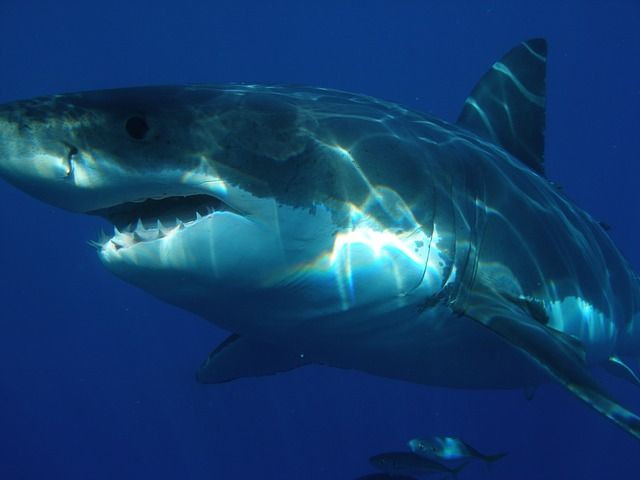'Queen Of The Ocean': 17-Foot Great White Shark Caught Off Nova Scotia, Tagged
KEY POINTS
- The great white shark weighed 3,541 pounds and measured 17 feet 2 inches in length
- It was named Nukumi by OCEARCH, a non-profit research organization
- She was the largest shark discovered in the Northwest Atlantic under the team’s project called Expedition Nova Scotia
A great white shark weighing 3,541 pounds and stretching 17 feet 2 inches in length was found by researchers in the waters off Nova Scotia, Canada.
Due to its massive size, the female white shark was described as "Queen of the Ocean" by researchers from OCEARCH, a non-profit marine research organization.
"We named her Nukumi, pronounced noo-goo-mee, for the legendary wise old grandmother figure of the Native American Mi’kmaq people," OCEARCH said in a Facebook post. The post said the Native American Mi’kmaq people have deep roots in Canadian Maritime provinces.
Moving forward, Nukumi will help OCEARCH with its relevant studies on marine species.
See posts, photos and more on Facebook.
"With the new data we've collected, this matriarch will share her wisdom with us for years to come. She will continue to help balance fish stocks in the surrounding waters, and we look forward to learning more from this wise guardian of our ocean's ecosystem," OCEARCH said in the same Facebook post.
Nukumi was the only sixth great white shark tagged and sampled by the OCEARCH team as part of the team’s project called Expedition Nova Scotia. She is the largest shark caught in the Northwest Atlantic.
OCEARCH’s Expedition Nova Scotia was started in 2019 to research about white sharks in Cape Breton, Nova Scotia. The expedition is unique in that scientists update the people about the exploration through social media.
OCEARCH also posted a video of Nukumi showing the "Queen of the Ocean" interacting with researchers.
3,541 lb #greatwhiteshark “Nukumi” is an ancient mature female #whiteshark or “Queen of the Ocean” that will share years worth of knowledge with the collaborative #OCEARCH science team. #ExpeditionNovaScotia #FactsOverFear pic.twitter.com/USVdvfqrdm
— OCEARCH (@OCEARCH) October 3, 2020
OCEARCH is a research organization that tags and gathers samples from creatures in the waters. On its website, the organization said it helps scientists gather insights from previously unobtainable data in the ocean. Their tagging and sampling involve ethical means in that animals are guided by hands into safety after being caught through their friendly traps.
The animals are lifted on a raised platform where experts, composed of researchers and veterinarians, take care of them until tagging and sampling are done. Data gathered includes acoustic, morphometrics, and animal blood and tissue samples.
According to the World Wide Fund for Nature, the great white shark is the world’s largest predatory fish known to science. Even though the sharks have 330 teeth, they prefer to rip their victims into pieces that can be swallowed whole.

© Copyright IBTimes 2024. All rights reserved.





















